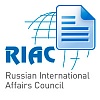Publications Review 20.03.2013
In
Login if you are already registered
(no votes) |
(0 votes) |
In this issue you will find: Venezuela's Oil Diplomacy, election of new Roman Pope, Russia-EU relations, Changing landscape of financial markets in Europe, the US and Japan, Chinese governments' push for real-name Internet registration.
 One the latest issues of “Other News” is dedicated to Cyprus Banking Crisis. Liz Alderman from the New York Times reviews recent developments of the situation and provides quotes by important Cypriot, Russian and European policy-makers on the question.
One the latest issues of “Other News” is dedicated to Cyprus Banking Crisis. Liz Alderman from the New York Times reviews recent developments of the situation and provides quotes by important Cypriot, Russian and European policy-makers on the question.
 In another issue of “Other News” Mario Osava in his article Dependent on Venezuela's Oil Diplomacy analyzes possible consequences of Hugo Chavez’s death for many Latin American countries, such as Cuba and Nicaragua, which strongly depend on Venezuela’s subsidized oil supplies, as well as for other countries of the region.
In another issue of “Other News” Mario Osava in his article Dependent on Venezuela's Oil Diplomacy analyzes possible consequences of Hugo Chavez’s death for many Latin American countries, such as Cuba and Nicaragua, which strongly depend on Venezuela’s subsidized oil supplies, as well as for other countries of the region.
 Another article from “Other News” is also dedicated to Latin America. M.J. Akbar the editor-in-chief of The Sunday Guardian provides his thoughts on the election of new Roman Pope and argues that Francis I, who is an Argentinean, was selected by Vatican conclave in order to provide a counter-balance against the rising popularity of New Left in Latin America.
Another article from “Other News” is also dedicated to Latin America. M.J. Akbar the editor-in-chief of The Sunday Guardian provides his thoughts on the election of new Roman Pope and argues that Francis I, who is an Argentinean, was selected by Vatican conclave in order to provide a counter-balance against the rising popularity of New Left in Latin America.
 The recent issue of Spotlight Europe, published by German Bertelsmann Stiftung in March 2013 under the name European Union and Russia at a Crossroads is dedicated to the complicated relations between Russia and the EU and analyzes possible ways of their improvement.
The recent issue of Spotlight Europe, published by German Bertelsmann Stiftung in March 2013 under the name European Union and Russia at a Crossroads is dedicated to the complicated relations between Russia and the EU and analyzes possible ways of their improvement.
 Brussels-base independent European think tank specializing in economics Bruegel recently published a working paper on the changing landscape of financial markets in Europe, the United States and Japan. The paper compares the structure of the financial sectors US, MBEU, BBEU, Eastern EU and Japan, looking at a set of 23 indicators, and presents main results of this comparison.
Brussels-base independent European think tank specializing in economics Bruegel recently published a working paper on the changing landscape of financial markets in Europe, the United States and Japan. The paper compares the structure of the financial sectors US, MBEU, BBEU, Eastern EU and Japan, looking at a set of 23 indicators, and presents main results of this comparison.
 Recent paper The Spartacus in China’s Wonderland by Yu Jing Shen Tu, published by Pacific Forum CSIS (PF CSIS) argues that “the push for real-name Internet registration not only shows the government's intent to tighten its control over the Internet, it also reflects Beijing's fear that Wangmins (Chinese Internet users) could lead a revolution in China”.
Recent paper The Spartacus in China’s Wonderland by Yu Jing Shen Tu, published by Pacific Forum CSIS (PF CSIS) argues that “the push for real-name Internet registration not only shows the government's intent to tighten its control over the Internet, it also reflects Beijing's fear that Wangmins (Chinese Internet users) could lead a revolution in China”.
 We also recommend following blog entry:
We also recommend following blog entry:
- Fadi Elhusseini Is Israel going really to attack Iran?
(no votes) |
(0 votes) |




